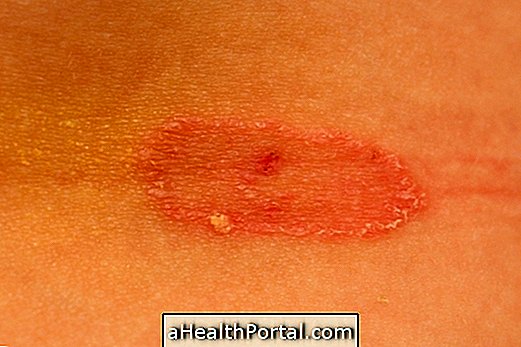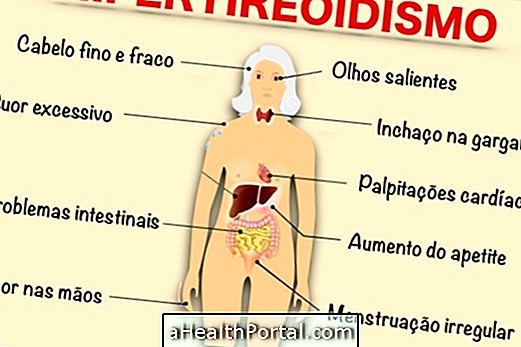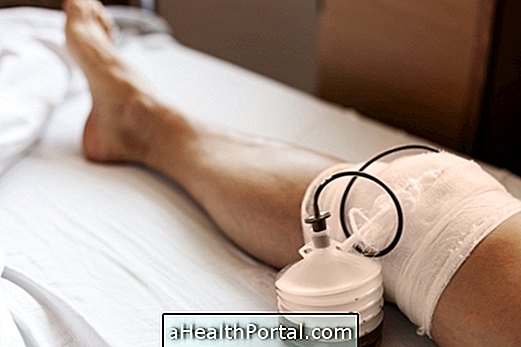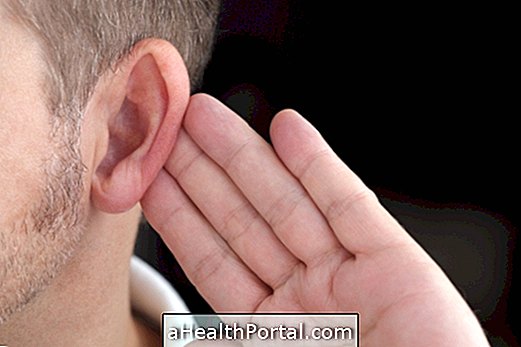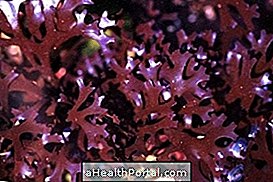Amoebiasis, also known as amoebic colitis or intestinal amebiasis, is an infection caused by the parasite Entamoeba histolytica, an "amoeba" that can be found in water and food contaminated by feces.
This type of infection does not usually cause symptoms, but when the immune system is weakened or when there are large numbers of parasites, it can cause gastrointestinal symptoms such as diarrhea, abdominal pain and general malaise.
Despite being an easily treated infection, amebiasis must be identified and treated as soon as the first symptoms appear, as this is the only way to prevent the progression of the disease, in which the liver or lung may be compromised, for example.
-o-que--sintomas-e-tratamento.jpg)
Main symptoms
Most cases of amebiasis are asymptomatic, especially since in most cases there is a small amount of parasites and the immune system is able to fight them.
However, when the parasitic burden is higher or when immunity is more compromised, symptoms such as:
- Diarrhea;
- Presence of blood or mucus in the stool;
- Abdominal pain;
- Cramps;
- Weight loss without apparent cause;
- Excessive tiredness;
- General malaise;
- Increased gas production.
Check out in this video the symptoms of this and other parasitic infections:
-o-que--sintomas-e-tratamento_2.jpg)
Symptoms usually appear between 2 and 5 weeks after consumption of food or water contaminated by amoeba and it is important that the disease is identified and treated as soon as the first signs and symptoms of infection appear, because the disease can progress and lead to the stage more severe of amebiasis, which is characterized with extraintestinal complications, receiving the name of symptomatic extraintestinal amebiasis.
In this case, the parasite is able to cross the intestinal wall and reach the liver, leading to the formation of abscesses, and also to the diaphragm, which may result in pleuropulmonary amebiasis. In symptomatic extraintestinal amebiasis, in addition to the common symptoms of amebiasis, there may also be fever, chills, excessive sweating, nausea, vomiting and alternating periods of diarrhea and constipation.
Learn more about infection by Entamoeba histolytica.
How the treatment is done
The treatment for amebiasis is determined by the doctor according to the type of infection that the person has, and the use of Paromomycin, Iodoquinol or Metronidazole may be recommended according to the medical indication. In the case of extraintestinal amebiasis, the doctor may recommend the combined use of Metronidazole and Tinidazole.
In addition, during treatment it is important to maintain hydration, since it is common to have a large loss of fluids due to diarrhea and vomiting that occur in amebiasis.
Was this information helpful?
Yes No
Your opinion is important! Write here how we can improve our text:
Any questions? Click here to be answered.
Email in which you want to receive a reply:
Check the confirmation email we sent you.
Your name:
Reason for visit:
--- Choose your reason --- DiseaseLive betterHelp another personGain knowledge
Are you a health professional?
NoMedicalPharmaceuticalsNurseNutritionistBiomedicalPhysiotherapistBeauticianOther
Bibliography
- ZEIBIG, Elizabeth A. Clinical Parasitology. 2nd ed. United States of America: Elsevier, 2013. 48-50.
- LONGO, Dan L. et al .. Harrison Internal Medicine. 18.ed. São Paulo: AMGH Editora, 2013. 1683-1686.
-o-que--sintomas-e-tratamento.jpg)


